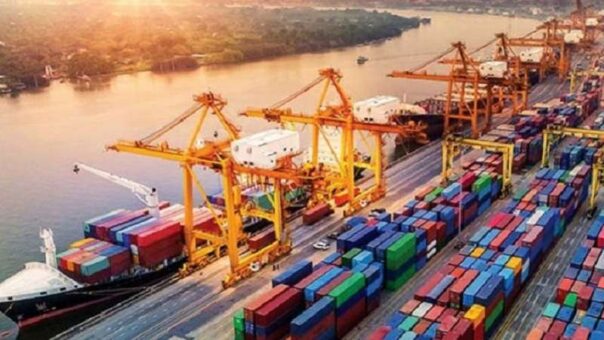Karachi, May 26, 2024 – The Pakistan Business Council (PBC) has called on authorities to ensure a transparent system for fixing import trade prices. In its proposals for the upcoming Budget 2024-25, the PBC highlighted that commercial importers are undermining the domestic industry through widespread under-invoicing and dumping of imported products.
The lack of publicly available information on the values at which various customs check posts clear import consignments has exacerbated this issue.
The PBC stressed that this opacity enables unscrupulous importers to under-declare the value of consignments, thereby evading government revenues. Additionally, the organization pointed out significant leakages in the Afghan Transit Trade (ATT), with smuggled goods being openly sold in major shopping centers across the country. Customs officials, however, cite a “lack of cooperation from local authorities” as a reason for their inaction against smuggled products.
To address these challenges, the PBC urged the Government of Pakistan to implement Electronic Data Interchange (EDI) for both Free Trade Agreement (FTA) and non-FTA imports from China. Moving forward, the requirement of EDI should be made compulsory for imports from FTA/Preferential Trade Agreement (PTA) partner countries.
The PBC suggested that the Import Trade Price should be determined based on factors such as the country of origin, weight, and volume, following discussions with stakeholders, including local manufacturers. This price should be fixed for items prone to mis-declaration, particularly consumer goods, and the margins of commercial importers should be monitored to assess the value of the subsequent supply of imported goods. To ensure compliance, auditors of commercial importers should issue certificates verifying these values.
Moreover, the PBC proposed amendments to Sections 25(A) and 25(D) of the Custom Act 1969 to allow local manufacturers to participate in setting the Import Trade Price. Currently, representation from only commercial importers risks biased decisions that can negatively impact tax and duties collection as well as the local manufacturing industry. The Sindh High Court has previously ruled that local manufacturers have no standing in the determination or enhancement of the customs value of goods. The proposed amendments would provide necessary legal cover to address this issue.
For items prone to under-invoicing and misdeclaration, the PBC recommended that the Federal Board of Revenue (FBR) designate one or two ports (including dry ports) for the clearing of import consignments. This measure would allow better monitoring of consignments where misdeclaration is more likely. Additionally, the PBC called for the revival of the old Customs General Order 25, with a provision allowing local manufacturers to buy undervalued consignments at a 15% premium.
The PBC argued that transparency in tax collection and measures to discourage tax and duty evasion would enable the industry to compete fairly with unscrupulous imports. This would also benefit the government through increased indirect tax revenues and enhance accountability within customs operations. Ultimately, the PBC believes that these changes would bolster Pakistan’s manufacturing base and promote economic growth.
